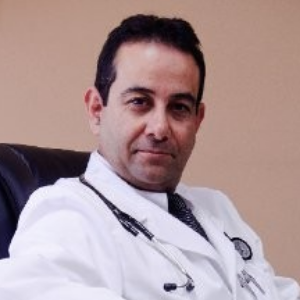Abstract:
This abstract discusses epigenetic regulations of hypoxia and its genomic transcription. The aberrancies in DNA methylation of several genes are crucial for vasculogenesis. By regulating this epigenetic mechanism, using a novel muti-targeted epigenetic therapy (MTET), we showed improved markers for survival in a clinical settings, in patients with advanced renal cell carcinoma (RCC). Background: A clinical example of the regulation of hypoxia driven pathways by epigenetics mechanisms is the transcriptional VHL in RCC. Mutated VHL in cases of patients with VHL disease, are unable to degrade hypoxia inducible factor-1 (HIF-1), by ubiquitination. This pattern is also relevant when VHL is methylated. In these cases, inactivation of VHL causes accumulated HIF-1. As epigenetic regulation of hypoxia and its genomic transcription is discussed, this appears to be the key to the mechanisms involved with heterogeneity of the tumor. It is well known that such genomic instability is reversible through epigenetic regulation. Method: Application of above scientific rationale through a combination of natural compounds, consisting of polyphenols that were able to significantly reduce HIF-1, and further inhibit tumor migration and invasion. Results: Accordingly, we treated a case series of advanced renal cell cancer who were using such novel epigenetic therapy, in a protocol called multi targeted epigenetic therapy (MTET), resulting in independent “antiangiogenic response” translated to improved progression free, or overall survival. We followed the biomarkers for vasculogenesis (and possible intratumoral hypoxia) in addition to circulatory tumor cell, and circulatory DNA assays. These served as biomarkers for tumor heterogeneity, and altogether represent a meaningful companion diagnostic tool, which translates to clinical outcome, and may predict overall survival. Conclusion: We conclude that this sample, although small, presents considerable effect size and may impact the current practice of oncology, by providing better prognostic and therapeutic tools targeting angiogenesis in refractory and advanced renal cell carcinoma.




